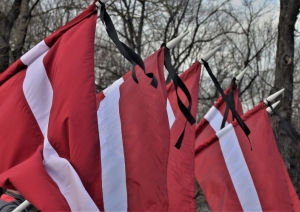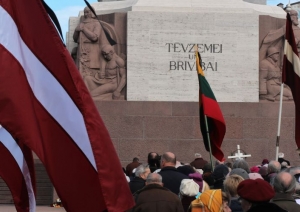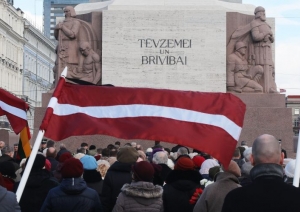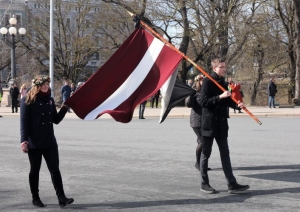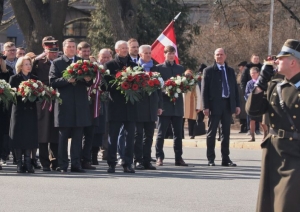Neighbours, relatives, and other compatriots also betrayed their fellow human beings to repression voluntarily or against their will, due to their fear or conviction. The Soviet power and the party gave orders, but there has been more than one Latvian among those executing the order. Both party members, the Young Communist League, and KGB agents, those who pointed and took them away, and those who guarded them. Moreover, those who kept silent. This guilt is a part of our nation’s heritage because a man drives every power machine.
Repressions could not be implemented to such an extent without the people from Latvia who had started an active collaboration with the occupation regime. To identify them is an issue of justice to all those who suffered from the brutality of the Soviet system.
However, bringing those rare people who were able and managed to save someone to the light from the darkness of the past is even more critical. The people who hurried to warn the relatives or neighbours included in the lists of the people to be deported at night by risking everything so that they would not be victimised by Soviet terror. These are the heroes we still owe commemoration.
Among them, there were also those who initially served the new power, but at the last moment they stepped out. To make mistakes is human. To fail to correct them is not.
Although the majority of the deported were Latvians, the repressed people were not sorted by nationality. The deportations were political, ideological, and even economic campaign with diverse goals and much broader implications than it might seem. We share the tragedy with the other Baltic States.
The terror of March 25 was followed by forty years of fear and distrust. Forty years that many of us had to spend in a deaf-and-dumb society not allowed talking about the fate of your loved ones or your own. Not being able to heal their wounds.
Thirty years ago, we told a confident ‘no’ to forgetting. Tens of thousands of Latvian residents went to the historical funeral march from Daugavmala to the Brethren Cemetery to commemorate the victims of Soviet repressions.
Such a memorial culture is the foundation of a civic society. It confirms that we have a common destiny based on which we can build a common future. This destiny can be painful, and this foundation can be rocky, but that is our destiny.
The repressed people and their families shall never forget the wrong of the Soviet regime, but has it not faded already away from our own memory during those thirty years? How much will our children remember and what do our grandchildren know about 25 March 1949? The imperfect knowledge of young people could be a threat to the memory of deportations shortly.
One might ask why it is so important. The commemoration of painful events in the past is not a neutral reflection of historical facts. It characterises the moral and political landmarks of modern society, the understanding of self and relationships with others.
At the national level, it is material for us to ensure that the society perceives the attitude to Communist crimes as a universal measure of morals. It is a clear and unequivocal borderline between good and evil, acceptable and unacceptable, right and wrong. It is a reminder that no compromise is possible with evil.
Let us remember it!
God bless our land!





